Plant hormones, also known as phytohormones, are chemical substances in plants that regulate their growth, development, longevity, and reproduction. These hormones are present in very low concentrations and include auxins, gibberellins, cytokinins, ethylene, and abscisic acid.
What are Plant Hormones?
Plants need sunlight, water, oxygen, and minerals to grow, which are external factors. In addition to these, they have internal factors called plant hormones or phytohormones that control their growth and development.
Types of Plant Hormones:
Auxins: Derived from indole, found in root and stem tips, help in cell elongation, apical dominance, and preventing premature leaf drop.
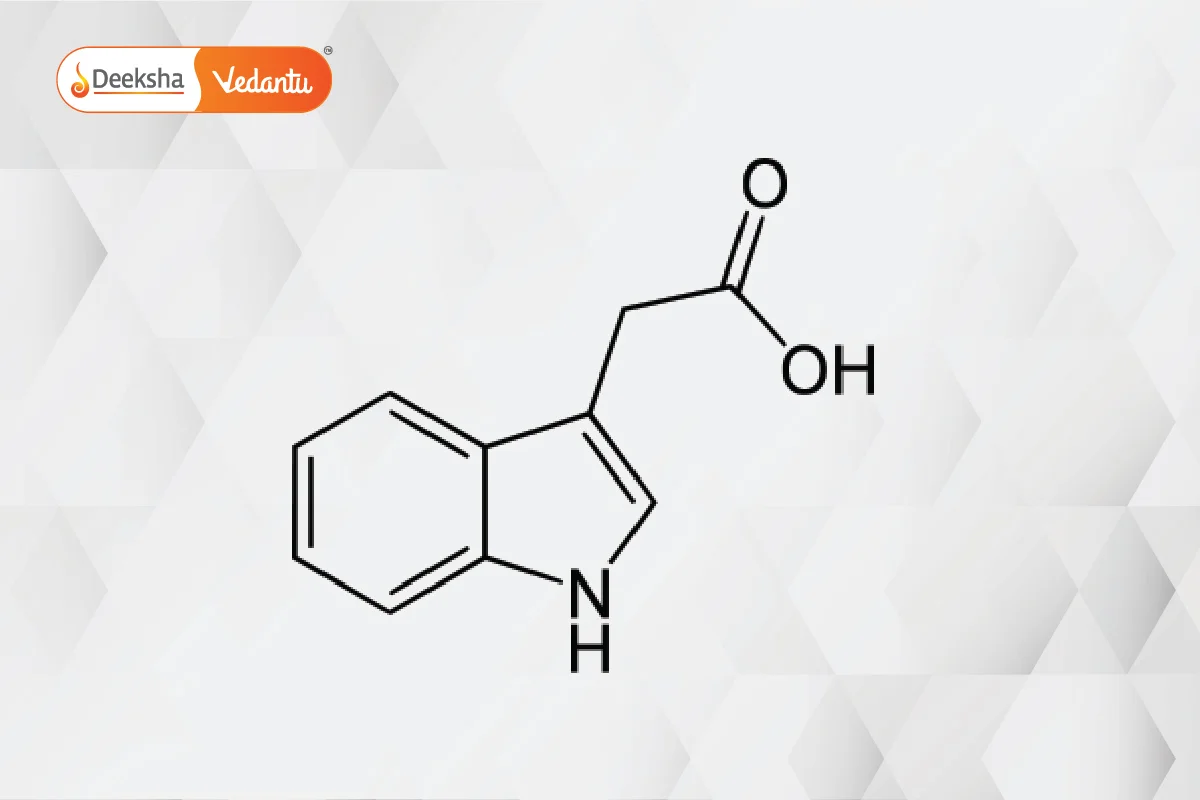
Gibberellins: Terpenes that promote stem elongation, delay aging, and help in seed germination.
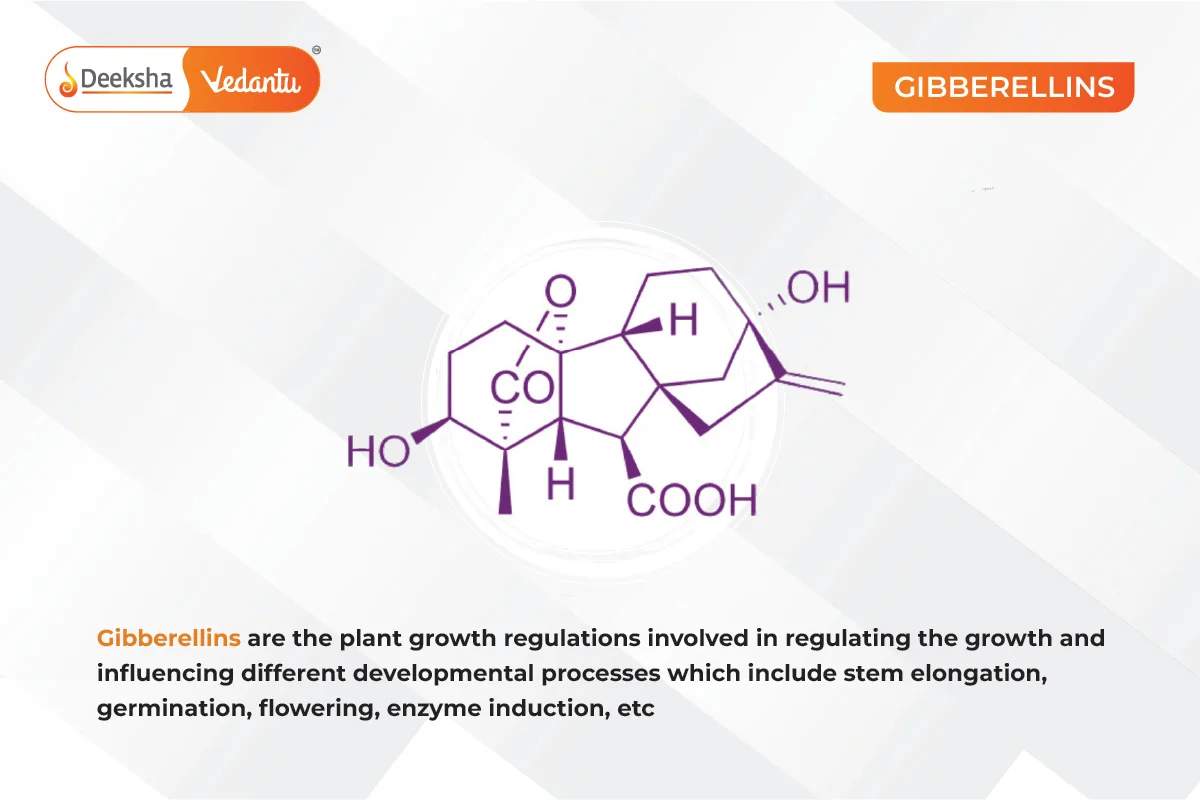
Cytokinins: Adenine derivatives that promote cell division, shoot growth, and delay leaf aging.
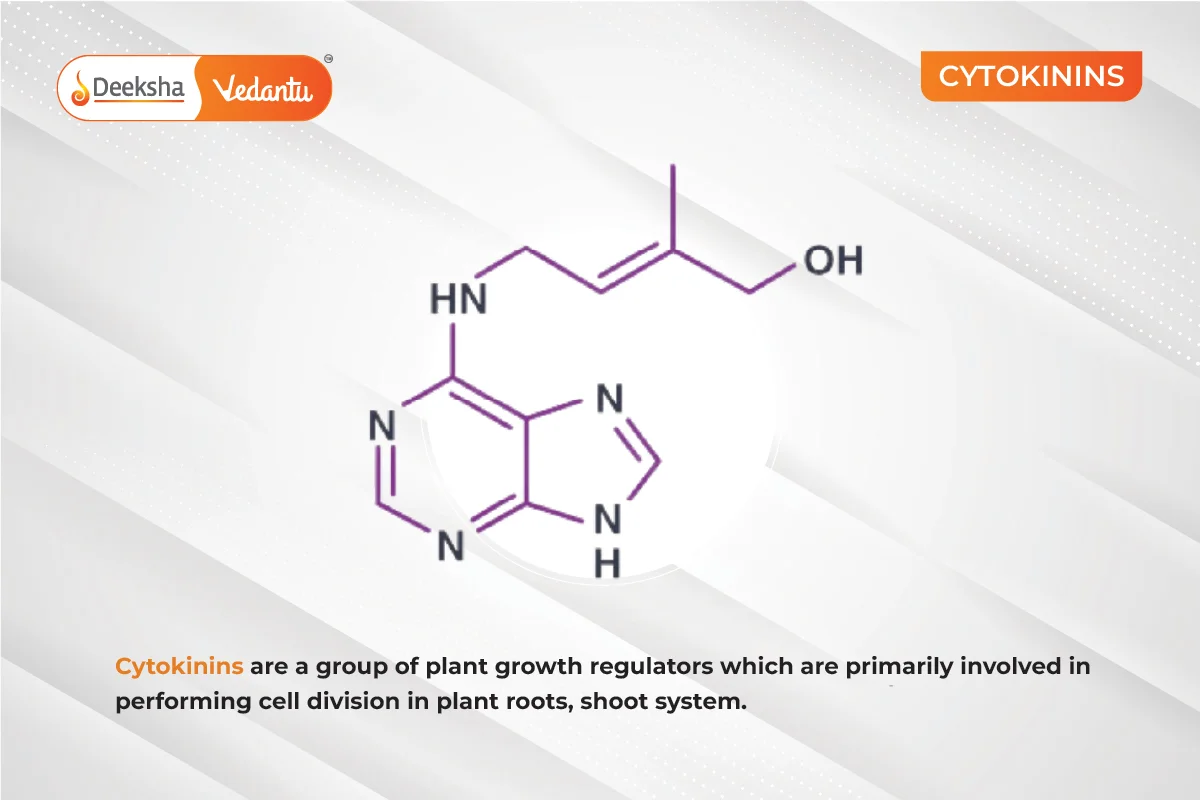
Ethylene: A gaseous hormone that promotes fruit ripening, leaf fall, and stress responses.
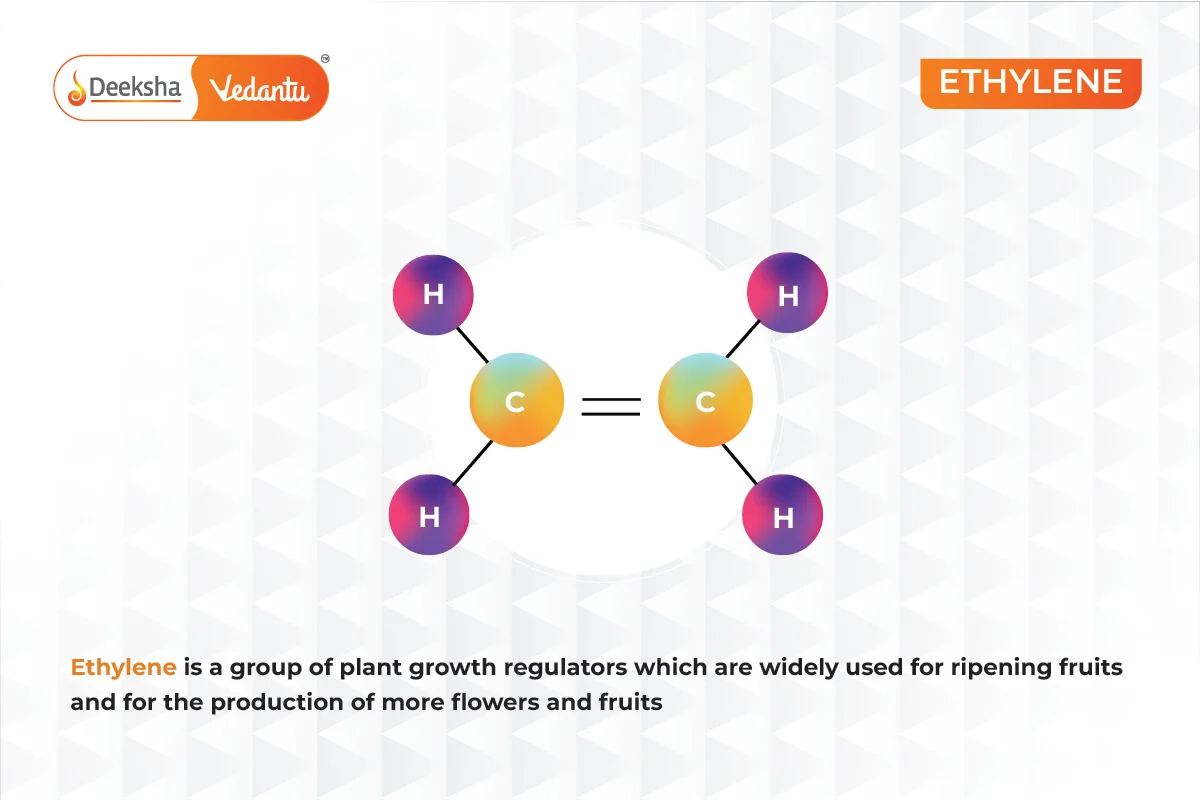
Abscisic Acid: A carotenoid derivative that inhibits growth, promotes dormancy, and closes stomata during water stress.
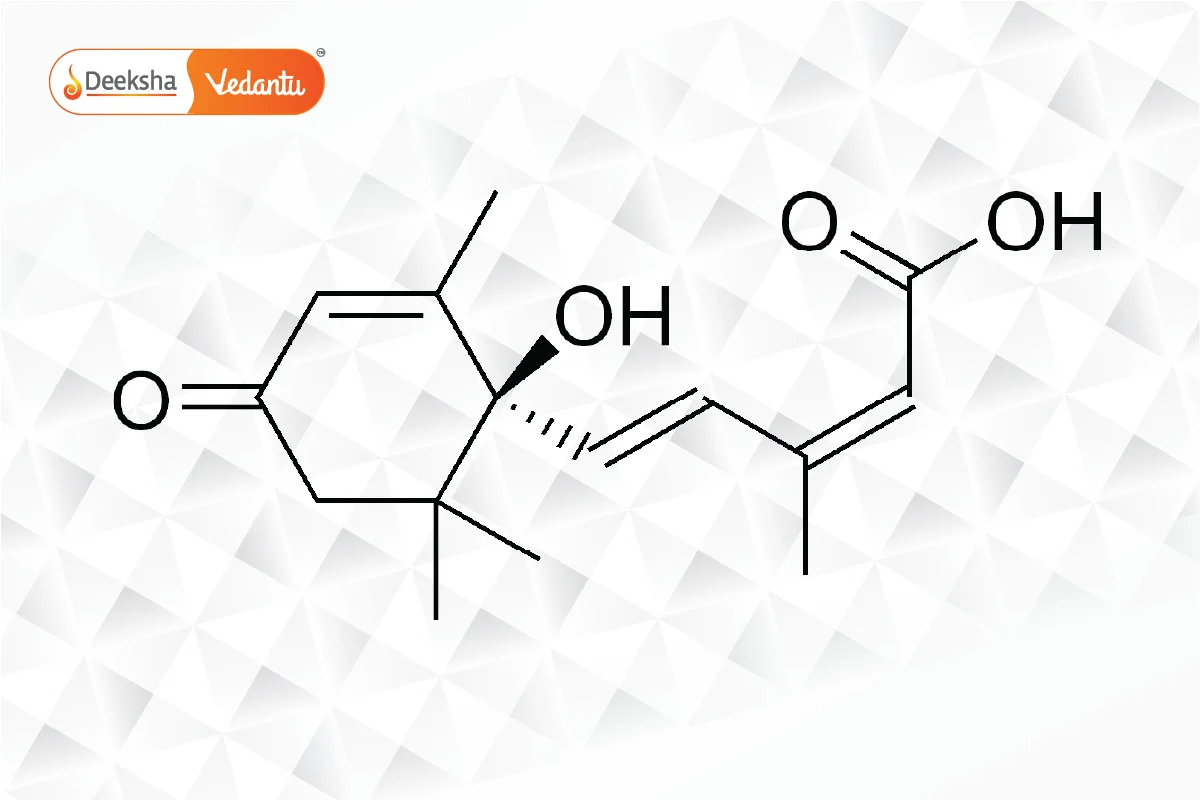
Functions of Plant Hormones
Plant hormones control various processes like cell division, growth, flowering, seed formation, and dormancy.
- Growth Promoters:
- Auxins: Promote stem and root growth, apical dominance, and prevent premature dropping of leaves and fruits.
- Gibberellins: Promote stem elongation, delay aging, and help seeds break dormancy.
- Cytokinins: Promote cell division and shoot growth, delay leaf aging, and overcome apical dominance.
- Growth Inhibitors:
- Abscisic Acid: Inhibits growth, induces dormancy, and helps plants tolerate stress.
- Ethylene: Promotes fruit ripening and leaf fall, acts as both a growth promoter and inhibitor.
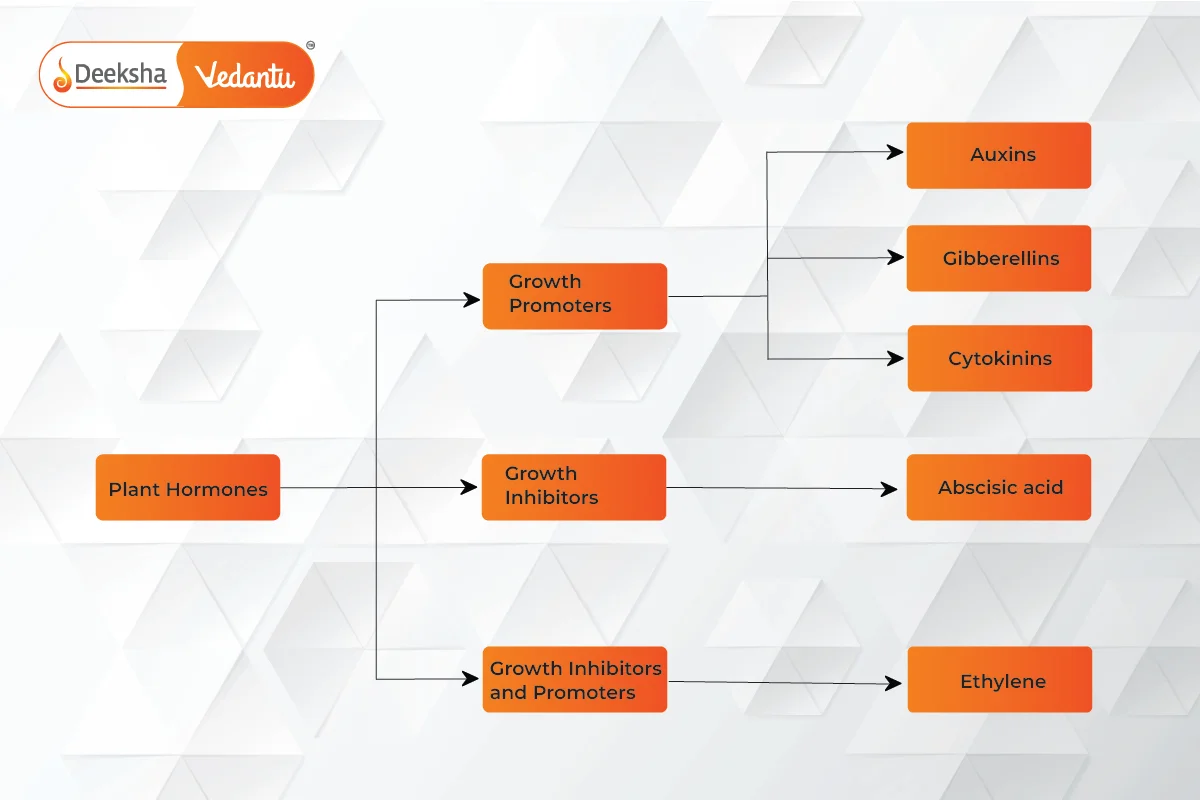
FAQs
Abscisic acid inhibits growth, induces seed dormancy, promotes leaf fall, and helps plants tolerate stress by closing stomata during water scarcity.
Plant hormones can act synergistically or antagonistically, meaning they can work together to enhance effects or oppose each other to balance growth and development processes.
Ethylene regulates fruit ripening, leaf fall, stress responses, and stimulates root hair formation.
Cytokinins promote cell division, shoot growth, delay leaf aging, and help overcome apical dominance.
Gibberellins promote stem elongation, break seed dormancy, delay aging, and induce flowering in certain plants.
Auxins promote cell elongation, maintain apical dominance, prevent premature leaf drop, and help in rooting and fruit development.
Plant hormones, or phytohormones, are chemical compounds present in low concentrations in plants, regulating growth, development, and responses to stimuli.
Related Topics
- DNA Polymerases
- Important Notes For NEET Biology – Cell Cycle and Cell Division
- Connective Tissue
- Important Notes For NEET Biology – The Living World
- Types of Fermentation
- Nostoc
- Paramecium
- Difference between Ideal Solution and Non-ideal Solution
- Plasma Membrane Structure
- Important Notes For NEET Biology – Chromosome Structure
- Important Notes For NEET Biology – Morphology of Flowering Plants
- Important Notes For NEET Biology – Body Fluids and Circulation
- Epithelial Tissue
- Marchantia
- Parenchyma Cells










Get Social